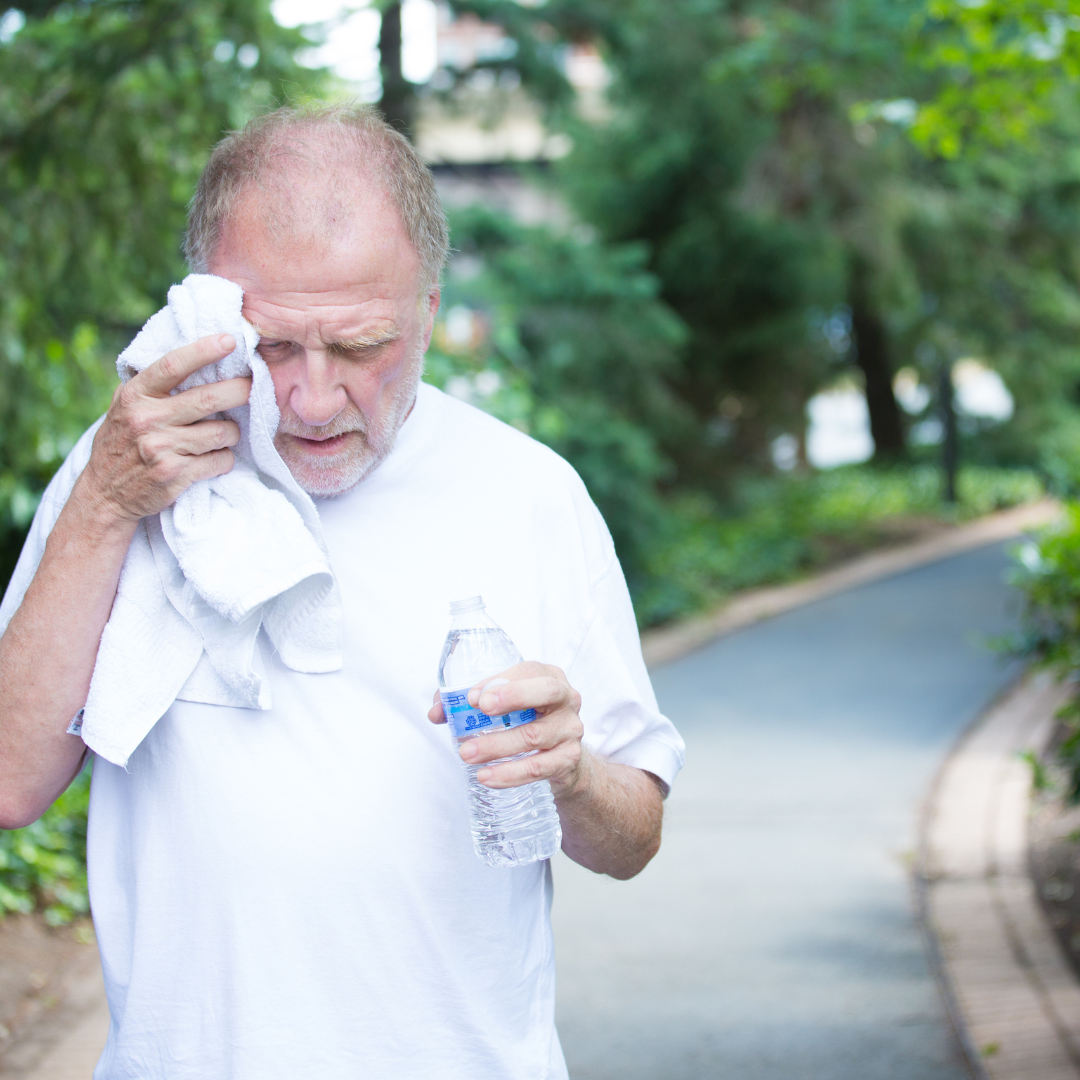Menu
 Canada's Largest Selection - Free Samples - Same Day Shipping, Order by Noon*
Canada's Largest Selection - Free Samples - Same Day Shipping, Order by Noon*
 Visit USA shop
Visit USA shop

While summer weather can be exciting, you should keep your loved one's health in mind. Heat exhaustion and heat stroke are among the risks that older adults face during the summer. You can help your aging loved one stay safe all summer long by following a few simple precautions and learning about the risks associated with heat and elderly people.
Tip #1: Avoid being exposed to the sun directly.
During periods of extreme heat, the best times to be outside are before 10 a.m. or after 6 p.m., when the temperature is cooler. Keep cool inside and keep the following tips in mind:
Tip #2: Use water to cool down.
As a result of dehydration, seniors may experience dizziness, fatigue, headaches, and other health problems related to heat. Dehydration eliminates vital salts and minerals from the body. Drink water, 100% juice drinks like orange juice or apple juice, sports drinks with electrolytes, and coconut water. Avoid alcohol and caffeinated drinks.
Tip #3: Put on the appropriate attire.
When it's hot outside, it's critical to dress appropriately. This seemingly insignificant decision can have a significant impact. Clothing, as well as accessories such as umbrellas, can help you avoid sunburns and heat exhaustion by allowing your body to cool more easily. Try the following:
Tip #4: Keep an eye on the weather forecasts.
Check your local weather forecast to find out which days of the upcoming week will be the coolest, and plan your activities around those days. Temperatures fluctuate frequently from day to day, sometimes by several degrees. Plan accordingly if reports of heat waves, rainstorms, and other weather events affect the temperature.
Tip #5: Act fast when they don’t feel well.
Heat-related illnesses can spread quickly if you do not act quickly. If you notice the first signs of dehydration or heat exhaustion, stop what you're doing and go somewhere cool to rest and hydrate. Call your doctor if you believe it is something serious. They can advise you on whether you should wait it out at home or go to your local clinic or emergency room for immediate care.






Sign-up for our Free Automatic Delivery Program and save 5% on all automatic orders going forward. Click here to learn more.
Receive short, informative emails with special offers and exclusive discounts. Cancel or unsubscribe anytime.
© 2026, Healthwick Canada Powered by Shopify
